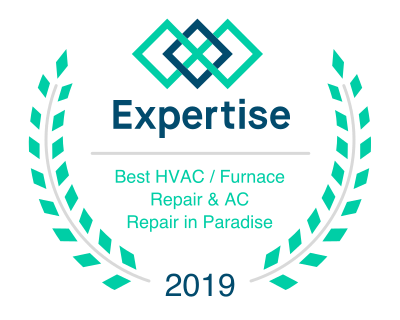Your HVAC (Heating, Ventilation, and Air Conditioning) system plays a pivotal role in maintaining the comfort of your home year-round. But when it malfunctions, it can be frustrating and costly to repair. The good news is that many common HVAC problems can be diagnosed and, in some cases, fixed by homeowners without any specialized training. In this guide, we will explore the 12 most common HVAC issues you can troubleshoot yourself, helping you ensure that your home remains a comfortable haven.
Common HVAC Problems You Can Troubleshoot
1. Dirty or Clogged Filters
One of the most frequent culprits behind HVAC troubles is dirty or clogged filters. These filters are responsible for trapping dust, debris, and allergens, but when they become clogged, they restrict airflow and reduce system efficiency. Regularly checking and replacing filters can significantly improve your HVAC unit’s performance.
2. Thermostat Issues
Sometimes, common HVAC problems are as simple as incorrect thermostat settings. Make sure your thermostat is set to your desired temperature and mode (cooling or heating). If you suspect thermostat problems, check for accidental temperature adjustments or dead batteries. Resetting the thermostat can often resolve issues, but if it persists, consider consulting an HVAC professional.
3. Ignition Problems
Difficulty starting your HVAC unit may indicate ignition issues. These problems can involve pilot lights, igniters, or various electrical components. Understanding the basic functioning of these parts can help you diagnose issues. While some ignition problems can be addressed by homeowners, others may require professional assistance for part replacements.
4. Wear and Tear
Every HVAC system is subject to wear and tear over time, no matter how diligently you maintain it. Recognizing signs of wear early can prevent more extensive breakdowns and costly repairs down the road. Regular inspections can help identify components that may need attention.
5. Uneven Cooling
If you find that your HVAC system cools certain areas of your home better than others, the issue might not be with the unit itself. Often, uneven cooling results from poor sealing or insulation in specific parts of your home. Identifying and addressing these problematic areas can help distribute airflow more evenly.
6. Coil Issues
Many HVAC units utilize coils, which are integral to their performance. If you notice that your coils are corroded or at risk of breaking, it may be time to seek professional assistance. While some coil problems can be addressed by homeowners, others are best left to the expertise of HVAC technicians.
7. Unusual Sounds
Your HVAC system typically produces consistent operational sounds. However, if you hear unusual noises like screeching, rattling, banging, or “thwapping,” it could be indicative of motor, blower, or fan issues. Recording these sounds and noting when they occur can aid technicians in diagnosing and resolving the problem accurately.
8. Dirty Evaporator and Condenser Coils
Over time, dust and grime can accumulate on the evaporator and condenser coils, hindering their ability to cool efficiently. Cleaning these coils is essential for maintaining peak performance. Due to the location and sensitivity of these components, it’s advisable to leave the cleaning to HVAC professionals.
9. Refrigerant Leaks
Refrigerant is crucial for your air conditioner’s cooling process. Low refrigerant levels can result from undercharging during installation or refrigerant leaks. Handling refrigerants is hazardous, and topping up the refrigerant is not a solution. Professional technicians are equipped to locate and repair leaks, ensuring optimal performance and environmental responsibility.
10. Tripped Breakers and Blown Fuses
Overworked blower motors, often caused by blocked vents or clogged filters, can lead to tripped circuit breakers or blown fuses. Before calling a professional, inspect your vents and replace filters. If the issue persists, consult an HVAC company for further investigation.
11. Blower Running Continuously
A blower motor that runs continuously can be attributed to various factors, including thermostat settings and faulty safety switches. Check your thermostat settings first, ensuring the fan is set to “auto” rather than “on.” If the problem persists, consider professional assistance to diagnose and rectify the issue.
12. Water Leaks
HVAC systems produce condensation, and proper drainage is crucial to prevent water leaks. Clogs or damage in drain lines, evaporator drain pans, heat exchangers, or collector boxes can lead to leaks. Addressing these issues promptly is vital to prevent property damage and the growth of mold and mildew, which can impact your health.
Preventative Maintenance
As it ages, your HVAC system is likely to experience more problems. The best way to minimize these problems is to sign up for a preventative HVAC maintenance plan, which includes regular professional maintenance and inspection of your entire system. The Cooling Company offers a comprehensive preventative maintenance plan that’s specially developed to keep your HVAC system problem-free and functioning at optimal performance and efficiency. Contact us at (702) 919-7852. to find out about our top-quality HVAC maintenance services.












